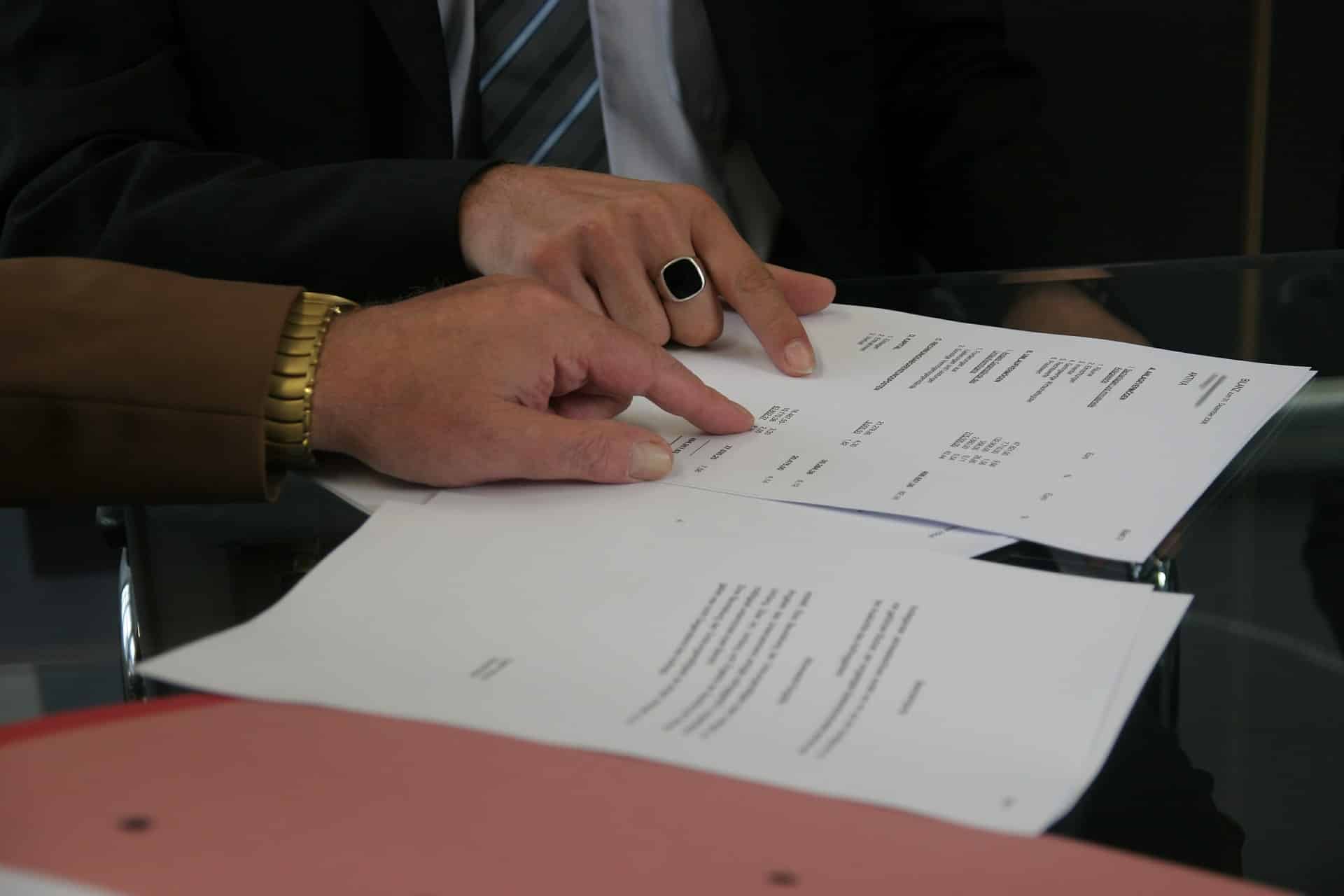Table of Contents
An injury caused by another person can be incredibly frustrating. You are likely suffering considerable pain and may have no way to support your family. You are probably also facing a lot of unexpected expenses, such as the costs of rideshare services, a rental car, yard maintenance, or childcare services.
You shouldn’t be left covering these costs. A personal injury attorney near you can help you determine what you may qualify for and fight for what you need.
Call The Goldwater Law Firm today to connect with one of our law firm partners in your area.
Getting Help is Easy
Call Us Anytime. Nights And Weekends, We’re Available.
A Trusted, Experienced Partner
Fill out the form on the top of the page and a case specialist will reach out to you.
No Fees Unless We Win
No Win, No Fee. You Don’t Pay A Penny Unless We Win Your Case.
Why Should You Work With The Goldwater Law Firm?
The Goldwater Law Firm is proud to offer the Gold Standard of Injury Law. We have two decades of experience fighting for injured people and protecting their right to compensation. We never stand for corporations taking advantage of vulnerable people.
We connect injured people to our law firm partners all across the country. We have strategic partnerships with some of the largest and most successful firms across the country who have one very important thing in common—their dedication to getting the results their clients need.
Types of Cases Our Personal Injury Law Firm Partners Handle
Our co-counsels near you can help with all different types of injury cases, including:
- Car accidents
- Motorcycle crashes
- Truck wrecks
- Pedestrian accidents
- Birth injuries
- Medical malpractice
- Nursing home abuse
- Wrongful deaths
Personal Injury Deserves Personal Attention!
Can I Afford a Lawyer?
Personal injury lawyers take cases on a contingency fee basis. A contingency agreement means the attorney’s fee depends on whether you win your case.
You pay nothing upfront, and only pay for the attorney’s time if they recover compensation.
What Is My Case Worth?
What your case is worth depends on the specifics of your case. Factors that could affect your case value include:
- Your expenses and losses
- The severity of your injuries
- The treatment you need
- Whether your doctor thinks that you will fully recover from your injuries
- Any long-term effects your injuries will have
- Whether your injuries will affect your ability to work in the future
- Your age
- Your profession
- Your salary
- The pain and suffering you experience
However, injured people often recover many of the same types of damages. Your personal injury lawyer may be able to help you recover compensation for the following:
Economic Damages
These damages could include:
- Medical bills, such as surgeries, emergency room visits, emergency care, prescription medications, hospitalization costs, assistive devices, and ongoing care
- Lost wages
- Lost earning capacity
- Miscellaneous expenses related to the accident and your injury
- Property damage
Non-Economic Damages
These damages could include:
- Pain and suffering
- Inconvenience
- Mental anguish
- Emotional distress
- Lost enjoyment of life
- Loss of consortium
Damages for a Wrongful Death
If you lost a loved one due to someone else’s actions or inaction, please accept our sincere condolences. Our co-counsels could help you recover compensation for:
- Medical bills before your loved one’s passing
- Funeral and burial expenses
- Loss of support and services
- Pain and suffering
- Grief
- Sorrow
- Mental distress
- Lost guidance and advice
- Lost companionship
Schedule a Free Case Review
Proving Negligence in an Injury Case
To hold someone responsible for an injury, your lawyer must prove the following:
The Other Party Owed You a Duty of Care
We have a responsibility to others to prevent undue injury. The responsibilities we have differ depending on the situation. For example, medical providers owe patients a duty to uphold their industry’s standard of care. Drivers owe other drivers, pedestrians, and cyclists a duty to drive safely and prevent accidents whenever possible. Nursing homes must provide adequate care to residents.
They Breached That Duty
The party in question behaved negligently and breached that duty. What a breach looks like depends on the situation.
For example, drivers can breach their duty of care by:
- Speeding
- Driving under the influence of alcohol or drugs
- Driving while distracted
- Driving while fatigued
- Tailgating
- Driving recklessly
- Failing to yield to pedestrians
- Failing to share the road
Medical providers can breach their duty to uphold the standard of care by:
- Failing to order necessary tests
- Misdiagnosing an illness
- Surgical error (e.g., operating on the wrong side of the body, operating on the wrong person, failure to maintain a sterile environment, leaving a surgical instrument in the body)
- Failing to diagnose a condition
- Delayed diagnosis
- Failing to monitor an expecting mother’s preeclampsia
- Failing to monitor a baby for fetal distress
Nursing homes breach their duty when they:
- Fail to provide medication, food, and/or water
- Allow abuse to occur
- Hire inexperienced staff
- Hire staff members with a history of violence
- Do not adequately staff their facility
Their Breach Caused Your Accident and Injury
The negligent action must have caused or contributed to your injury.
For example:
- A tailgating driver rear-ended you when you stopped at a stop sign. You suffered a traumatic brain injury and whiplash.
- A surgeon left a surgical sponge inside your body, causing sepsis.
- A nursing home failed to provide adequate care to your loved one, who passed away.
You Suffered Damages
You must have suffered harm to have a valid case. Damages could include medical bills, lost wages, lost earning capacity, other accident-related damages, pain and suffering, mental anguish, and emotional distress.
Our co-counsels have access to our large pool of resources, which allows them to prove the four elements above and get you the compensation you need.
Personal Injury Deserves Personal Attention!
Can I Handle My Personal Injury Case Alone?
You could handle a personal injury case alone. However, that means you would have to handle every aspect of your case, including:
- Gathering evidence: This can be very complex in situations like truck accidents, where the trucking company controls most of the crucial evidence. It is also difficult for someone without legal experience to determine what evidence is necessary to build a strong case.
- Identifying your recoverable damages: People often leave thousands of dollars (or more) on the table because they don’t know what damages they can recover. An attorney will investigate your case and determine what you might qualify for.
- Determining a fair settlement value for your damages: People often settle for much less than they deserve because they don’t have an accurate estimate of their losses. An injury lawyer can help you estimate what you might be eligible for.
- Finding experts for your case: You may need an expert witness, such as an accident reconstruction expert or a physician, to testify. Identifying (and paying for) the right witness in your case can be difficult, but our team has an extensive pool of resources that our law firm partners have full access to.
- Handling all communication with insurance companies and involved parties: It’s very easy to say or do something that jeopardizes your case, and insurance companies are counting on this. An attorney will protect you from being taken advantage of.
- Negotiating for a fair settlement: Some people may know they can negotiate with the insurer for a higher settlement, but are afraid to. An attorney knows how to handle this process and won’t back down on your behalf.
- Managing deadlines: All states limit how long injured people have to file lawsuits. Your lawyer will manage these deadlines for you.
- Filing a lawsuit: It’s very easy to make a mistake when filling out and filing lawsuit paperwork. A lawyer knows how to avoid these mistakes.
- Preparing your case and presenting it in court: In some cases, you may need to present your case in court. This is intimidating, but if you work with an attorney, they handle it for you.
Add on attempting to recover from your injuries or caring for an injured loved one, even one of the tasks above, can feel impossible.
How Much Time Do I Have to File a Lawsuit?
How long you have to take legal action depends on the specifics of your case. Some states have different time limits, called statutes of limitations, for personal injury, wrongful death, and medical malpractice.
Typically, these time limits range from one year to six years; however, this time limit (called the statute of limitations) could be longer or shorter, depending on your circumstances. For example, you could have as little as six months to sue if your liable party is a government agency. The time limit could be longer in medical malpractice cases if your state has a discovery rule (i.e., the statute of limitations doesn’t start until you discover the injury).
If you fail to file within this time limit, you risk recovering nothing. You can still negotiate for a fair settlement, but you lack leverage. This means you will likely need to take the settlement the insurance company offers, even if it is much less than you need.
Get Connected With a Personal Injury Attorney Near You
You should be focused on your recovery, not on learning personal injury law so you can hold another person or corporation liable. Let a lawyer handle the legal aspects of your case.
Contact The Goldwater Law Firm today to get started.





